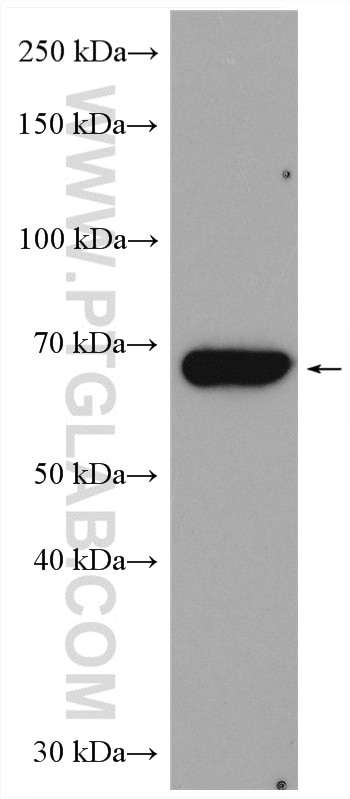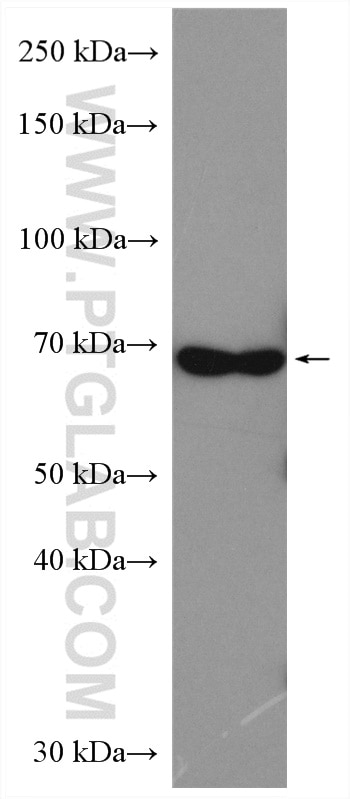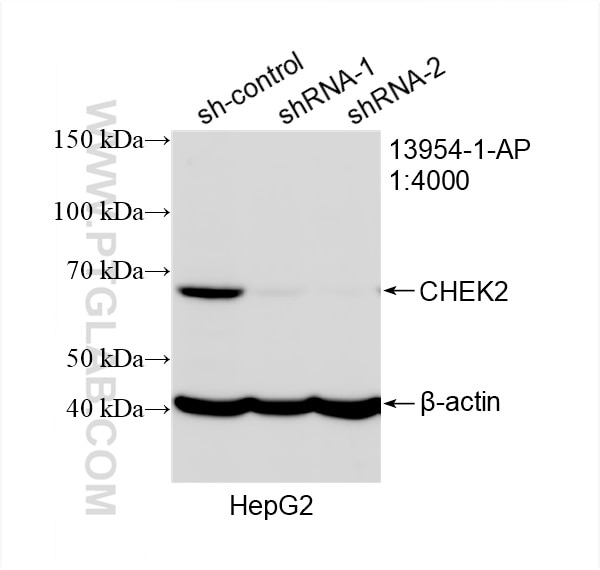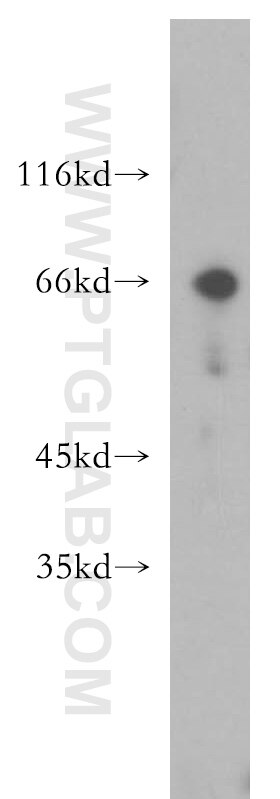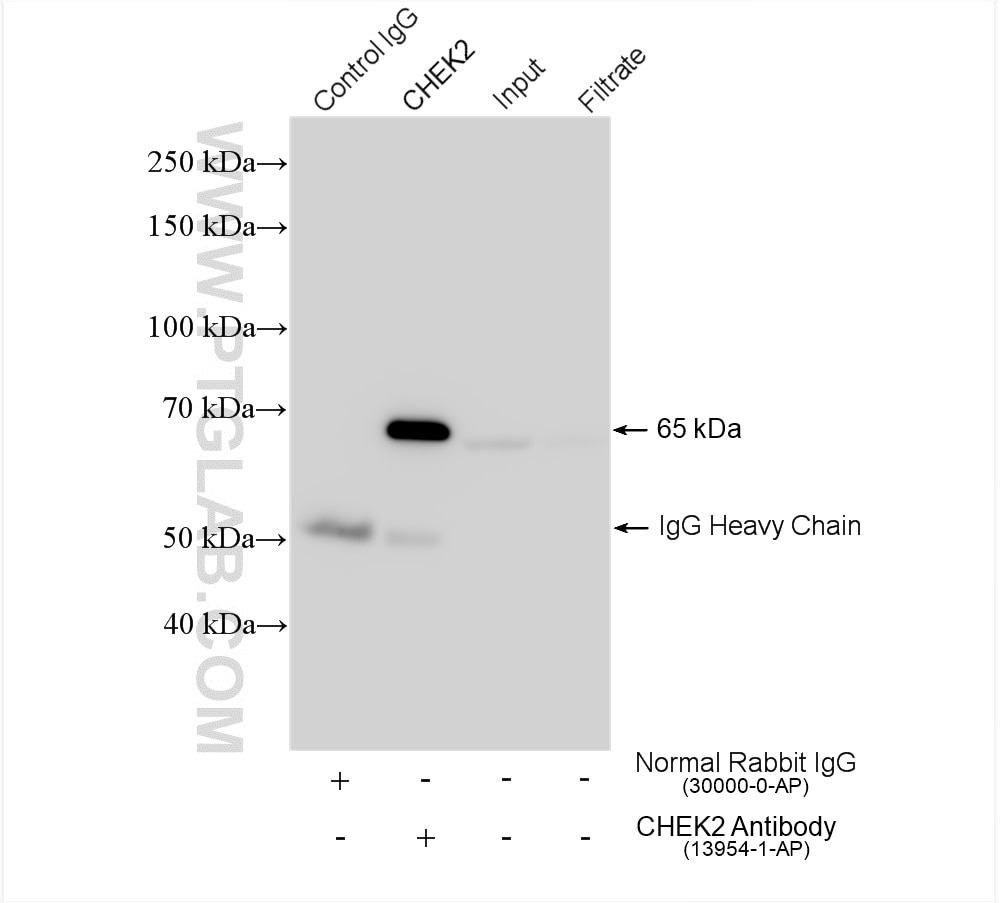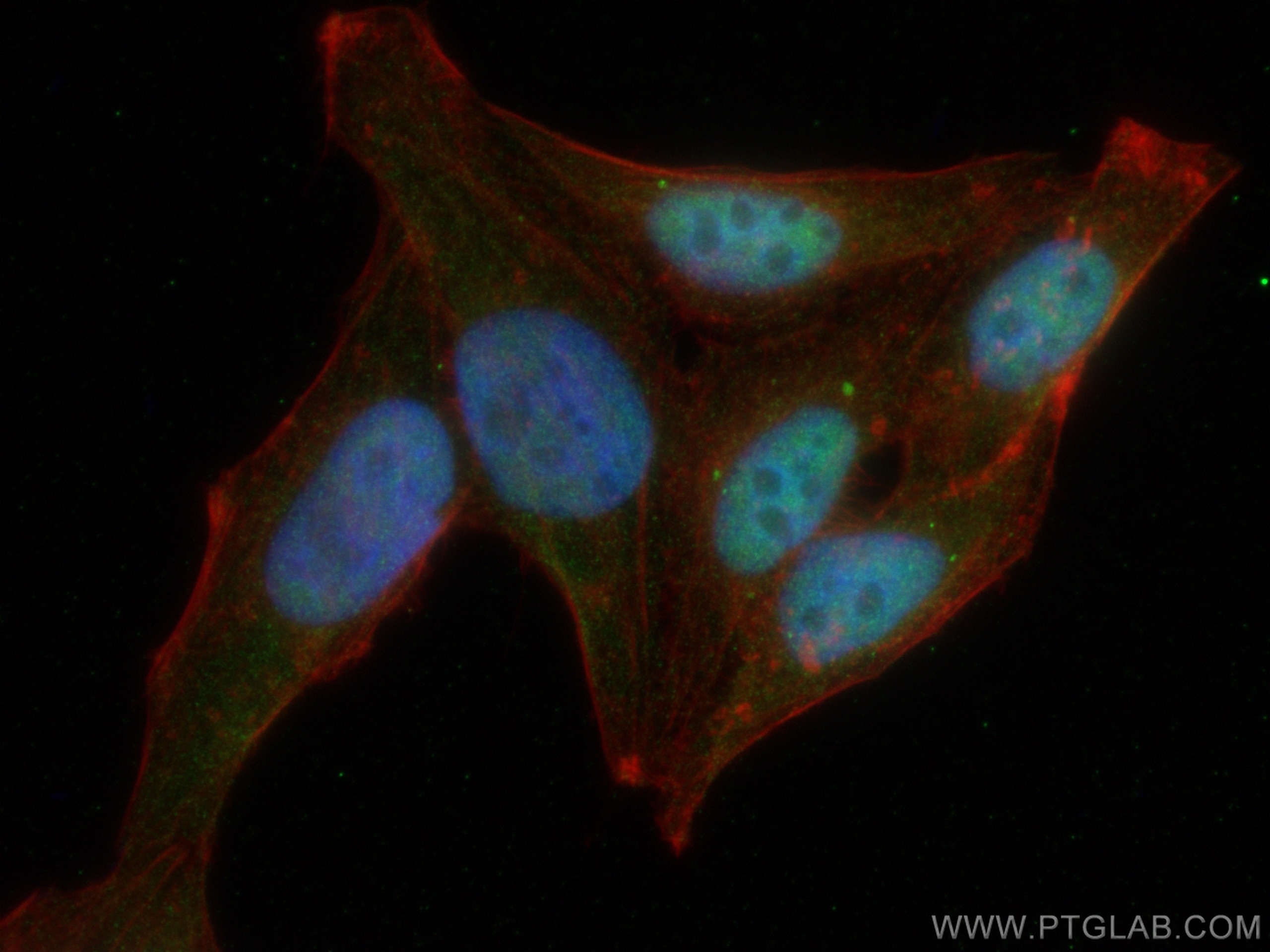- Featured Product
- KD/KO Validated
CHEK2 Polyklonaler Antikörper
CHEK2 Polyklonal Antikörper für WB, IF/ICC, IP, ELISA
Wirt / Isotyp
Kaninchen / IgG
Getestete Reaktivität
human, Maus, Ratte
Anwendung
WB, IHC, IF/ICC, IP, ELISA
Konjugation
Unkonjugiert
Kat-Nr. : 13954-1-AP
Synonyme
Geprüfte Anwendungen
| Erfolgreiche Detektion in WB | HL-60-Zellen, HeLa-Zellen, HepG2-Zellen |
| Erfolgreiche IP | HeLa-Zellen |
| Erfolgreiche Detektion in IF/ICC | HepG2-Zellen |
Empfohlene Verdünnung
| Anwendung | Verdünnung |
|---|---|
| Western Blot (WB) | WB : 1:500-1:1000 |
| Immunpräzipitation (IP) | IP : 0.5-4.0 ug for 1.0-3.0 mg of total protein lysate |
| Immunfluoreszenz (IF)/ICC | IF/ICC : 1:50-1:500 |
| It is recommended that this reagent should be titrated in each testing system to obtain optimal results. | |
| Sample-dependent, check data in validation data gallery | |
Veröffentlichte Anwendungen
| WB | See 37 publications below |
| IHC | See 2 publications below |
| IF | See 2 publications below |
Produktinformation
13954-1-AP bindet in WB, IHC, IF/ICC, IP, ELISA CHEK2 und zeigt Reaktivität mit human, Maus, Ratten
| Getestete Reaktivität | human, Maus, Ratte |
| In Publikationen genannte Reaktivität | human, Maus, Ratte |
| Wirt / Isotyp | Kaninchen / IgG |
| Klonalität | Polyklonal |
| Typ | Antikörper |
| Immunogen | CHEK2 fusion protein Ag5065 |
| Vollständiger Name | CHK2 checkpoint homolog (S. pombe) |
| Berechnetes Molekulargewicht | 61 kDa |
| Beobachtetes Molekulargewicht | 65 kDa |
| GenBank-Zugangsnummer | BC004207 |
| Gene symbol | CHEK2 |
| Gene ID (NCBI) | 11200 |
| Konjugation | Unkonjugiert |
| Form | Liquid |
| Reinigungsmethode | Antigen-Affinitätsreinigung |
| Lagerungspuffer | PBS with 0.02% sodium azide and 50% glycerol |
| Lagerungsbedingungen | Bei -20°C lagern. Nach dem Versand ein Jahr lang stabil Aliquotieren ist bei -20oC Lagerung nicht notwendig. 20ul Größen enthalten 0,1% BSA. |
Hintergrundinformationen
Chk2(Checkpoint kinase 2) is also named as CDS1, CHEK2, RAD53 and belongs to the CHK2 subfamily. It is a protein kinase that is activated in response to DNA damage and involved in cell cycle arrest. It also mediates the induction of senescence in fibroblasts, but is dispensable for the induction of telomere dysfunction checkpoints at the stem and progenitor cell level(PMID:20577265). This protein can exsit as a dimer (PMID:19782031). Active forms of CHEK2 devoid of phosphorylation at Thr-68 can form unstable dimers(PMID:12386164). Defects in CHEK2 is a cause of susceptibility to breast cancer (BC)(PMID:21618645). It has 12 isoforms produced by alternative splicing.
Protokolle
| PRODUKTSPEZIFISCHE PROTOKOLLE | |
|---|---|
| WB protocol for CHEK2 antibody 13954-1-AP | Protokoll herunterladen |
| IF protocol for CHEK2 antibody 13954-1-AP | Protokoll herunterladen |
| IP protocol for CHEK2 antibody 13954-1-AP | Protokoll herunterladen |
| STANDARD-PROTOKOLLE | |
|---|---|
| Klicken Sie hier, um unsere Standardprotokolle anzuzeigen |
Publikationen
| Species | Application | Title |
|---|---|---|
Cell Death Differ ZNF451 collaborates with RNF8 to regulate RNF168 localization and amplify ubiquitination signaling to promote DNA damage repair and regulate radiosensitivity | ||
PLoS Biol A long noncoding RNA sensitizes genotoxic treatment by attenuating ATM activation and homologous recombination repair in cancers. | ||
Oncogene TRIM24 is critical for the cellular response to DNA double-strand breaks through regulating the recruitment of MRN complex | ||
Clin Transl Med Single-cell profiling-guided combination therapy of c-Fos and histone deacetylase inhibitors in diffuse large B-cell lymphoma. | ||
Int J Nanomedicine TiO2 Nanoparticles Caused DNA Damage in Lung and Extra-Pulmonary Organs Through ROS-Activated FOXO3a Signaling Pathway After Intratracheal Administration in Rats. |
Rezensionen
The reviews below have been submitted by verified Proteintech customers who received an incentive for providing their feedback.
FH Priya (Verified Customer) (01-17-2023) | I have used this antibody for human keratinocytes, cardiomyocytes, mouse skin and liver tissues
|
